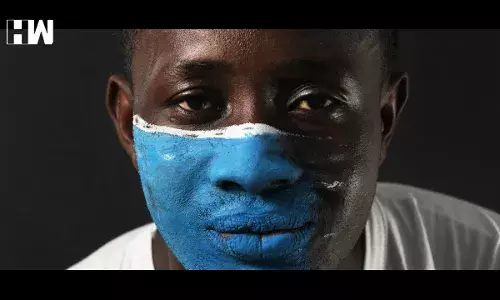The UN health agency chief expressed optimism during a press briefing on Wednesday that 2022 maybe the year the world ends the acute stage of the COVID-19 pandemic.
World Health Organization (WHO) Director-General Tedros Ghebreyesus reminded that it was two years ago, as people gathered for New Year’s Eve celebrations, that a new global threat emerged.
Since then, 1.8 million deaths were recorded in 2020 and 3.5 million in 2021, but the actual number is much higher. There are also millions of people dealing with long-term consequences from the virus.
‘Tsunami of cases’
Right now, Delta and Omicron are driving up cases to record numbers, leading to spikes in hospitalizations and deaths.
Tedros is “highly concerned” that the more transmissible Omicron, circulating at the same time as Delta, is leading to “a tsunami of cases.”
Earlier in the year, during meetings of the world’s biggest economies – the G7 and G20 – WHO challenged leaders to vaccinate 40 per cent of their populations by the end of 2021 and 70 per cent by the middle of 2022.
With only a couple of days left in the year, 92 out of 194 Member States missed the target.
Tedros attributed this to low-income countries receiving a limited supply for most of the year and then subsequent vaccines arriving close to expiry, without key parts, like syringes.
New goals
“Forty per cent was doable. It’s not only a moral shame, it cost lives and provided the virus with opportunities to circulate unchecked and mutate“, he said.
The WHO chief warned that boosters in rich countries could cause low-income countries to again fall short and called on leaders of wealthy countries and manufacturers to work together to reach the 70 per cent goal by July.
“This is the time to rise above short-term nationalism and protect populations and economies against future variants by ending global vaccine inequity”, he said.
“We have 185 days to the finish line of achieving 70 per cent by the start of July 2022. And the clock starts now”.
Successes
Early on, Tedros acknowledged that beating the new health threat would require science, solutions, and solidarity.
While elaborating on some successes, such as the development of new vaccines, which he said “represent a scientific masterclass“, the WHO official lamented that politics too often triumphed over solidarity.
“Populism, narrow nationalism and hoarding of health tools, including masks, therapeutics, diagnostics and vaccines, by a small number of countries undermined equity, and created the ideal conditions for the emergence of new variants”, Tedros said.
Moreover, misinformation and disinformation, have also been “a constant distraction, undermining science and trust in lifesaving health tools”.
He highlighted as a case in point that huge waves of infections have swept Europe and many other countries causing the unvaccinated to die disproportionally.
The unvaccinated are many times more at risk of dying from either variant.
Future
As the pandemic drags on, new variants could become fully resistant to current vaccines or past infection, necessitating vaccine adaptations.
For Tedros, as any new vaccine update could mean a new supply shortage, it is important to build up local manufacturing supply.
One way to increase production of lifesaving tools, he said, is to pool technology, as in the new WHO Bio Hub System, a mechanism to voluntarily share novel biological materials.
Tedros also pointed to the new WHO Hub for Pandemic and Epidemic Intelligence, based in Berlin.
Finally, the WHO chief called for the development of a new accord between nations, saying it would be “a key pillar” of a world better prepared to deal with the next disease.
“I hope to see negotiations move swiftly and leaders to act with ambition”, he said.
As an independent media platform, we do not take advertisements from governments and corporate houses. It is you, our readers, who have supported us on our journey to do honest and unbiased journalism. Please contribute, so that we can continue to do the same in future.

